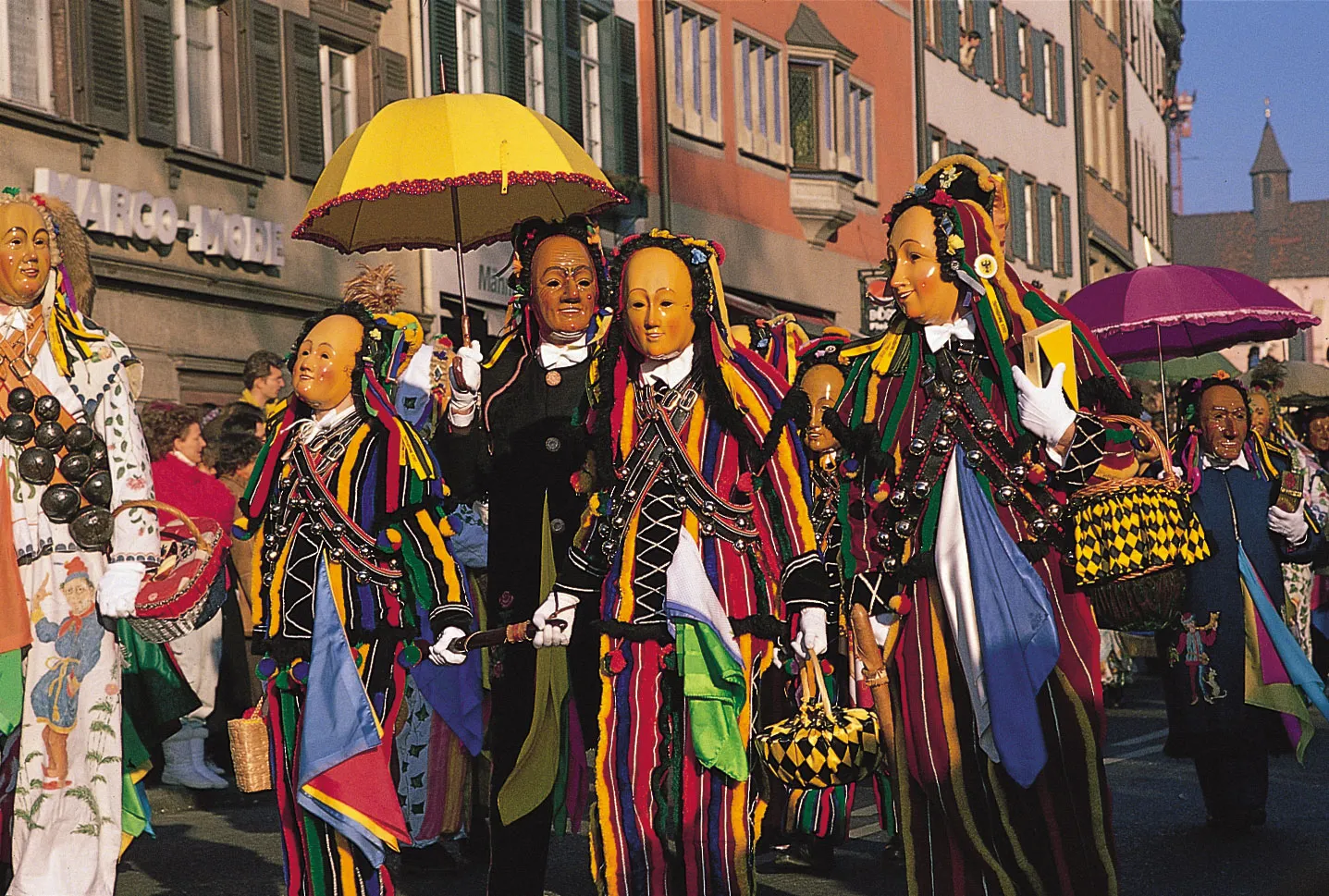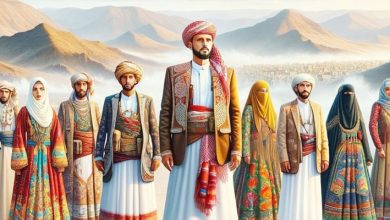Culture of Germany with General Information
Total Size:
357,021 square km
Capital:
Berlin
Region:
Europe
Low Point:
NeuendorfbeiWilster -3.54 m
High Point:
Zugspitze 2,963 m
Climate:
Cool, cloudy, occasional warm mountain wind, temperate and marine, wet winters and summers
Major Cities:
Berlin, Hamburg, Munich, Cologne, Frankfurt, Stuttgart, Dusseldorf
Famous Places:
Brandenburg Gate in Berlin, Reichstag building, Cologne Cathedral, Rugen Cliffs, Frauenkirche, Oktoberfest in Munich, Heidelberg Old City, the Black Forest, Berlin Wall, Neuschwanstein Castle in Bavaria, Romantic Rhine.
Currency:
euro (EUR)
Type of Government:
federal republic
Independence:
18 January 1871
Divisions:
16 States.
General Overview of Germany

Germany is a country with a rich history and culture that has had a lasting impact on the world. From its long-standing traditions and practices to its art and architecture, music and dance, cuisine and gastronomy, language and literature, media, religion, sports, festivals, economy, education, political system, and current trends, Germany’s culture are diverse and unique. In this blog, we will explore the various aspects of German culture, from its historical background to its technological advancements, gender roles, social customs and etiquette, environmental issues, immigration and multiculturalism, and its impact on global society. We will also look at the future of German culture, as well as its influence on other cultures and its shaping through globalization.
Historical Background of German Culture
German culture has been heavily influenced by its turbulent history. It has undergone many changes over the centuries and has been influenced by a variety of events, such as the Roman and Frankish invasions, the Protestant Reformation, and the industrial revolution. During the Middle Ages, Germany was divided into several kingdoms, each with its own distinct culture and customs. These kingdoms created their own unique cultural identities that still remain today. Throughout the centuries, German culture has been shaped by the rise and fall of empires, the spread of Christianity, the growth of cities, and the invention of new technologies. The cultural impact of the Holocaust and the Cold War has also had a major influence on the country’s culture. As Germany moves forward into the 21st century, its culture continues to evolve and adapt to the changing times.
Cultural Traditions and Practices in Germany
Germany is a country that boasts a rich history of unique cultural traditions and practices. Many of these customs have been passed down from generation to generation and remain a part of everyday life for German citizens. Some of these customs include the celebration of Oktoberfest, a traditional beer-drinking festival that takes place in Munich every year. Other important cultural practices include the observance of Karneval, a carnival that celebrates the beginning of Lent, and various religious holidays such as Christmas and Easter. Germans also take pride in their language and literature, and their educational system places great emphasis on mastering the German language. Germany is also known for its strong musical tradition, and many citizens take part in local choirs, bands, and orchestras. All of these cultural traditions and practices are integral to the identity of German culture.
Art and Architecture in Germany
The art and architecture of Germany have been celebrated for centuries and are renowned for their unique style and beauty. From the breathtaking views of the Alps to the architectural masterpieces of the Baroque period, Germany is home to some of the world’s most breathtaking art and architecture. Germany is known for its grand cathedrals, castles, and churches, as well as its modern art galleries, museums, and monuments. The country also has a rich tradition of folk art, music, and literature, making it a cultural powerhouse. The culture of Germany is deeply rooted in its history and its people and is a source of pride for the country. Its influence can be seen in many forms of art and architecture throughout the world, making it a lasting part of German culture.
Music and Dance in Germany
Germany is home to a vibrant and diverse culture of music and dance. Music is an important part of the country’s identity, and many genres of music have roots in Germany. From classical and folk music to rock and pop, Germany has a wide variety of musical styles. German folk music is a vibrant tradition passed down from generation to generation. This music is often still performed in rural areas, and the instruments used for it are unique to the region. Meanwhile, Germany is also known for its contemporary rock and pop music, which is popular throughout the world.
Similarly, dance is an important part of German culture. Traditional German dance has its roots in European folk dance styles and is still very popular in rural areas. German folk dance is often performed in large groups and involves intricate steps and formations. Modern dance styles such as hip-hop, jazz, and ballet are also popular in Germany, especially among the younger generations.
Clearly, music and dance are an integral part of German culture. From classical to contemporary styles, German music and dance have greatly influenced the country’s identity. Whether it’s folk music or modern dance, Germany’s culture is alive and well.
German Cuisine and Gastronomy
German cuisine is known for its regional diversity, with each area having its own signature dishes and regional specialties. Germans are known for their hearty, hearty dishes, featuring a variety of meats, stews, sausages, and fresh vegetables. Specialty dishes such as sauerbraten and kartoffelklöße can be found across the country. German gastronomy is also known for its use of spices and herbs, as well as its unique combination of sweet and savory flavors. German baking also has a long history, with its iconic pretzels, strudels, and pastries. German cuisine is a testament to the rich cultural heritage of the country, with its flavors reflecting the diversity of the people who call Germany home.
Language and Literature in Germany
German culture is heavily influenced by language and literature. Since German is the native language of Germany, literature in the language has been a part of its culture for centuries. Literary works such as dramas, novels, poems, and short stories have shaped the German language and have been studied in schools and universities. German literature has had a profound influence on European culture, and it has been the source of inspiration for many authors throughout the world. German literature includes works from the Middle Ages, the Renaissance, the Baroque period, the Enlightenment, the Romantic period, and modern times. Many German authors have won Nobel Prizes for their work, such as Thomas Mann and Hermann Hesse. German literature has played an important role in the development of German culture, and it continues to be a major part of the country’s identity.
Media in Germany
Germany is home to a diverse and vibrant media landscape. German culture is heavily influenced by its mass media, which covers a broad range of topics, from politics and current events to entertainment. Newspapers, television, radio, and the internet are all widely used by Germans to stay informed and entertained. Germany has some of the most respected media outlets in the world, such as Der Spiegel and Die Zeit, and is home to numerous television networks and radio stations. Online media has also become increasingly popular in Germany, with more people using the internet to gain access to news and other information. Social media is also gaining traction, as more Germans take to platforms such as Facebook, Instagram, and Twitter to share their thoughts and opinions. The German media plays an important role in keeping the public informed and entertained and continues to be a key part of German culture.
Religion in Germany
Germany is a secular state, with the majority of its population being Christian, and an increasingly diverse population practicing other religions. The Protestant denominations are the largest, followed by the Roman Catholic Church. Other Christian denominations are also present. Islam is the second largest religion, with more than 5 million adherents. Other religions such as Judaism, Buddhism, Hinduism, and Sikhism also have a presence in Germany. The country also has a large number of atheists, making up around 30% of the population. Freedom of religion is guaranteed in the German Constitution, and the government works to ensure that all religious groups can practice their beliefs without discrimination.
Sports in Germany
Sports play an important role in German culture, with a wide variety of activities available to participate in. Football (soccer) is the most popular sport in Germany, with over 6 million registered players in the country. In addition to football, other popular sports in Germany include handball, tennis, basketball, track and field, and ice hockey. Germans are also avid fans of winter sports such as skiing, snowboarding, and sledding. While professional sports are popular in Germany, recreational sports are also very popular and include activities such as cycling, running, swimming, and hiking. Germans also enjoy participating in traditional sports such as fencing and archery. Whatever the activity may be, it is clear that sports are an integral part of German culture.
Festivals and Celebrations in Germany
Germany is a culturally rich country full of vibrant festivals and celebrations. These celebrations are often deeply connected to the country’s long and varied history. One of the most iconic festivals celebrated in Germany is Oktoberfest, an annual beer festival and folk festival held in Munich since 1810. During Oktoberfest, people can enjoy parades, music, traditional dress, and of course, beer. Another popular festival is Karneval, a two-week celebration beginning on November 11th that includes parades, costume balls, and other activities. Another beloved event is the Christmas Market, which is celebrated in most major cities throughout Germany. This event includes festive decorations, lights, and the traditional German Christmas tree. All of these celebrations bring the community together to celebrate their culture and traditions.
The economy in Germany
Germany is known for its strong economy and high standard of living. The German economy is one of the most competitive in Europe, and the country is a leader in exports and manufacturing. Germany is also a major contributor to the European Union, providing both resources and expertise. The German labor force is highly educated and skilled, and the country is home to numerous research and development centers. German culture places a strong emphasis on hard work and diligence, which has helped the country become an economic and technological powerhouse. This dedication to excellence is evident in the country’s commitment to sustainable growth and environmental protection. Germans take great pride in their country’s economic success, as it is seen as a reflection of their collective hard work and dedication.
Education in Germany
Germany has a long and proud history of high-quality education. Its universities, universities of applied sciences, and technical and vocational institutions provide a wide range of educational opportunities to students from around the world. The German education system is characterized by the principles of freedom and responsibility, and a focus on rigorous academic standards. The German culture places a great emphasis on education and its importance to the development of a well-rounded individual. German schools offer a variety of courses in all areas of study, such as mathematics, sciences, languages, arts, and humanities. In addition to traditional school-based learning, Germany also offers apprenticeships and vocational programs, allowing students to gain valuable hands-on experience while they study. Germany is an excellent choice for students seeking a comprehensive and challenging educational experience.
Political System
The political system is based on a federal parliamentary representative democratic republic. This means that Germany is divided into a number of states, each of which has its own government. The central government is responsible for defense and foreign policy, but the states have power over certain areas such as education and health care. Germany has a multi-party system, with the two main parties being the conservative Christian Democratic Union (CDU) and the Social Democratic Party (SPD). Smaller parties include the Green Party, the Left Party, and the Free Democratic Party. Elections are held on a regular basis and the government is formed from the party that receives the most votes. Germany has a strong tradition of cultural diversity and tolerance, making it an attractive country to live in.
Current Trends in German Culture
Germany is an incredibly diverse country with a rich history and culture. These days, German culture is constantly shifting and evolving, and a variety of trends can be seen throughout the country. Art, music, fashion, and cuisine are all seeing exciting changes, with artists exploring new ideas and creating works that are both unique and influential. In the fashion world, German designers are pushing boundaries and experimenting with new textures and silhouettes. Music is also experiencing a surge in popularity, as more and more artists from Germany and around the world are pushing the boundaries of what’s possible. German cuisine is also seeing exciting changes, with chefs using local ingredients and creating dishes that mix traditional flavors with modern techniques. Overall, Germany is a country that’s always changing and evolving, and its culture is no exception.
Technological Advancements in Germany
Germany has a long history of technological advancement and is a leader in many areas of modern innovation. From major developments in automotive technology to advances in the medical field, Germany has consistently demonstrated its commitment to innovation and progress. In recent years, the country has made an even greater effort to promote the development of new technologies and ideas. This commitment has been reflected in the number of start-ups and incubators which have been funded by German organizations and the government. These developments have seen Germany emerge as a major player in the technology sector and have helped to shape its culture. From the development of advanced automotive technology to the advances in robotics, Germany has demonstrated its commitment to innovation and progress.
Gender Roles in Culture
German culture has long held traditional values and gender roles, which have been reflected in the workplace, family life, and various other aspects of society. Men are generally seen as having the primary responsibility for providing for their families, while women are typically seen as caregivers and homemakers. This is also reflected in the structure of German companies, which generally have a hierarchical structure and male-dominated leadership. Women are often underrepresented in positions of power and authority, with men holding the majority of top positions. Despite the traditional gender roles, there has been an increasing trend towards greater gender equality in recent years, with more women becoming involved in the workforce and achieving higher levels of education and success. This trend is likely to continue in the future as Germany strives to break down gender barriers and create a more equal society.
Social Customs and Etiquette in Germany
Germany is known for its rich cultural heritage and has many social customs and etiquette rules that should be respected and followed when visiting the country. In Germany, it is important to greet people formally, making sure to shake hands and address them by their formal titles. Eye contact should be maintained during conversations and maintaining a respectful distance when talking is important. Saying “please” and “thank you” frequently is also customary. Table manners are important & should be followed every time. It is also important to arrive on time for any engagements or events. Generally, it is customary to bring a gift when invited to someone’s home. Removing your shoes when entering someone’s home is also expected. In Germany, it is considered rude to blow your nose in public. Gift-giving is also important in German culture, and it is polite to give a small gift when invited to someone’s home.
Environmental Issues in Germany
Germany has a long history of environmental protection and is known for its commitment to sustainability. However, like many other countries, Germany has its own set of environmental issues that its citizens and government must contend with. The most pressing issues include air pollution, water pollution, deforestation, and climate change. Air pollution is a significant problem in Germany, particularly in densely populated urban areas. The burning of fossil fuels and industrial emissions are the main sources of this pollution, which can lead to respiratory illnesses, asthma, and other health issues. To combat this problem, Germany has implemented various laws and regulations aimed at reducing emissions and improving air quality.
Water pollution is also an issue in Germany. Agricultural runoff, industrial waste, and sewage overflow are all major sources of pollution in German waterways. The German government is taking steps to reduce water pollution by implementing stricter regulations and enforcement of existing laws.
Deforestation is another problem in Germany, where forests are being cleared for agricultural and industrial development. The government is taking steps to protect forests and promote reforestation, but illegal logging and forest fires remain major problems.
Finally, climate change is an ongoing concern in Germany, where rising temperatures, sea-level changes, and extreme weather events are having a major impact on the environment. The German government is committed to reducing its carbon footprint and investing in renewable energy sources, such as solar and wind power, to try and mitigate these effects.
Immigration and Multiculturalism
Immigration and multiculturalism have been a part of German culture for centuries, and the country has been shaped by its diverse cultural backgrounds. Germany is home to one of the largest immigrant populations in Europe, with more than 10 million people of foreign backgrounds living in the country. Germany has been a leader in promoting multiculturalism, with policies that provide for cultural integration and support for immigrants. This includes initiatives to promote language learning, economic and educational opportunities, and cultural events. Additionally, Germany has made it easier for citizens of other countries to gain permanent residence, creating a more inclusive and tolerant society. As Germany continues to accept immigrants and promote multiculturalism, it is becoming more and more diverse and vibrant.
History of German Immigration
The history of German immigration to the United States dates back to the early 1700s. German settlers were among the first to arrive in colonial America, with the first Germans arriving in 1683 in Pennsylvania. The influx of German immigrants continued throughout the 19th century, with a large number of German immigrants contributing to the country’s culture and economy. This influx of German settlers and immigrants had a lasting impact on the culture of the United States, with German culture continuing to influence the country today. From cuisine to music to language, German culture has had a lasting impact on the United States. German immigrants brought their traditional recipes, music, and language to the United States, creating a unique blend of cultures. The German language is still spoken in many parts of the United States, and German cuisine remains popular in many restaurants throughout the country. German immigrants also had an impact on the economy of the United States. German immigrants were responsible for establishing many businesses and industries, including brewing and steel production. German immigrants also played a pivotal role in the development of the American educational system, helping to create some of the most prestigious universities in the United States. German immigrants continue to play an important role in the fabric of the United States, and their contributions to the culture and economy of the country are undeniable.
Contribution of German Culture to the World
German culture has made an enormous contribution to the world. It is a culture that has been shaped by centuries of history and art. German literature, music, and art have had a lasting impact on the world. From the works of Goethe, Beethoven, and Bach to the Expressionist art of the early 20th century, German culture has been an influential force throughout the world. Additionally, German science and philosophy have been instrumental in shaping the world’s intellectual and scientific development. German culture has also had a significant impact on modern technology. Germany is home to a number of renowned companies that have been pioneers in the fields of engineering and technology. German cuisine is also well-known and widely embraced around the world. From the delicious noodles of Bavaria to the hearty sausages of Berlin, German cuisine has something to offer everyone. German culture is truly something to be admired, and its influence can be felt in many places around the world.
German Immigration at Present Day
At present day, German immigration is still an important factor in the global landscape. Millions of people from Germany have settled in countries around the world, bringing with them their unique culture and language. In addition to those who have voluntarily chosen to leave their homeland, many German immigrants have been forced to flee due to war, poverty, or persecution. For those who have chosen to leave Germany, the cultural benefits of immigration are often remarkable. German immigrants brought with them a rich cultural heritage, including a deep appreciation for art, music, literature, and philosophy. This has led to a greater level of cultural exchange and understanding between nations. Furthermore, German immigrants bring with them a strong work ethic, which can lead to economic growth in their new home countries. With this influx of new ideas, perspectives, and labor, German immigration can serve as a powerful force for global economic growth and cultural exchange.
Social Implications of German Culture
The German culture has had a lasting impact on social life, both in Germany and around the world. German culture is known for its strong tradition of community and family values, highly organized and efficient practices, and a commitment to quality and excellence. German people are known for their direct and honest communication, which often creates a sense of trust and mutual respect. Germans are also known for their high level of public safety and strict adherence to rules and regulations. This cultural emphasis on safety and order is reflected in German society, which is known for its strong infrastructure, efficient public transportation, and effective government institutions. The German language is an important part of German culture, as it is used to communicate and express ideas, feelings, and beliefs. Additionally, German culture is heavily influenced by the country’s history, with an emphasis on the importance of learning and education, as well as a reverence for the arts and literature. Many aspects of German culture have been adopted by other countries, making it an important part of the global social landscape.
Impact of German Culture on Global Society
German culture has had a profound influence on global society, both historically and in modern times. Historically, Germany has had a major role in European culture, having produced many great thinkers, philosophers, composers, and artists who have had a lasting impact on the rest of the world. More recently, German culture has been seen as a leader in areas such as technology, finance, healthcare, and engineering. This has had a positive effect on the way other countries approach these fields, with many other nations attempting to emulate German success in these areas. Additionally, German popular culture has had an influence on the rest of the world, with its beer, sausages, and cakes becoming staples of many different countries. German culture, in all its forms, has had a major impact on the rest of the world.
Migration and Integration in Germany
Migration and integration have been an integral part of German culture for centuries, and the country has seen an influx of immigrants from all corners of the world. As Germany is a historically open and welcoming country, it has become a major destination for people from all walks of life who are looking for a better life. Germany’s emphasis on integration has allowed for a diverse mix of cultures and communities, with people from all backgrounds living, working, and thriving in the country. This has brought about positive changes to the nation’s economy and has also had positive effects on its social and cultural life. The country has made great strides in creating a welcoming and inclusive atmosphere for immigrants, and it has also implemented measures to ensure that migrants are able to quickly and easily integrate into German society. As a result, Germany is now an incredibly diverse nation that is continuing to grow and develop in exciting ways.
Influence of German Culture on Other Cultures
German culture has had a profound influence on other cultures around the world. Germany has a rich history and a vibrant cultural heritage that has been influential in many aspects of life, from language to music, art, literature, and values. The German language is the most widely spoken language in the European Union, and its influence can be seen in many other languages. German literature has had a major impact on other countries, from the works of Kafka and Brecht to modern German authors such as Heinrich Böll. Music is also a major part of German culture, with many genres and styles that are popular around the world. German art is also well-known, with some of the greatest painters of the 19th century coming from Germany. German values such as hard work, efficiency, and diligence have also been adopted by many other cultures, and have had a major impact on the way business is conducted and the way people live their lives. Overall, the influence of German culture is clear, making it one of the most influential cultures in the world.
Impact of Global Culture on German Society
In recent years, globalization has had a profound impact on German culture. As more and more people migrate to Germany, their cultural values, norms, and customs are brought with them, creating a more diverse and multicultural society. The mix of different cultural influences has had a significant impact on German society, affecting the language, customs, and everyday life of the people living there. People from all over the world are now living in Germany, which has made the country more open to different cultures and has brought about a major shift in the way German people think and act. This cultural diversity has helped to create a more tolerant society that embraces and celebrates the different cultures present in Germany. As a result, Germany is now a much more vibrant and dynamic country, where different cultures coexist in harmony.
The Future of German Culture
German culture has a long and proud history, from the medieval beginnings of the Holy Roman Empire to the modern-day Federal Republic of Germany. As a major cultural force in Europe, the future of German culture is a topic of much discussion and debate. Currently, the future of German culture is characterized by increasing openness to foreign influences, as well as an embrace of the latest technological advancements. This has led to a thriving cultural landscape that includes both traditional elements and contemporary trends. For example, German literature, art, and music have seen a resurgence in recent years, with many authors and artists finding success both domestically and internationally. At the same time, a growing number of German startups are creating new opportunities for economic growth, while German universities are producing innovative research and ideas. As Germany continues to navigate the challenges of the 21st century, its culture will be an important part of finding solutions and ensuring its place in the world.
Influence of German Culture on Other Cultures
German culture has had a significant influence on other cultures around the world. From literature and the arts to language, music, and cuisine, Germany has made its mark in a variety of ways. German literature, in particular, has had a lasting impact on other countries through its exploration of philosophical themes and its use of language. German music, from classical to modern-day, has been embraced by many cultures, while traditional German foods remain popular in many countries. Additionally, the German language is one of the most widely spoken in the world and has been adopted by many other countries as a second language. German culture has been an important part of world culture for centuries, and its influence continues to be felt in many different countries today.
Shaping German Culture Through Globalization
In recent years, German culture has been profoundly affected by global trends. With the increase of global interconnectedness, there has been a dramatic shift in the way German culture is perceived in the world. The emergence of digital media and the internet has allowed for an influx of new influences from around the world to shape German culture. This has led to a blending of styles, resulting in a unique blend of German and international cultures. Additionally, the increasing globalization of industry and trade has caused a large influx of foreign materials and products into Germany, further changing the face of German culture. Globalization has also had a great impact on the way Germans view themselves and their culture. Germans are now more open to new ideas, cultures, and perspectives from around the world. As a result, German culture has become more inclusive, diverse, and distinctive as it continues to be shaped by the ever-changing dynamics of globalization.
Conclusion
In conclusion, German culture is a rich and varied mix of customs, traditions, art, literature, music, language, religion, media, economy, politics, technology, gender roles, social customs and etiquette, environmental issues, and immigration. It has had a profound influence on global society, and its contributions to the world are undeniable. Through globalization, German culture is constantly evolving, and its impact on other cultures is undeniable. As the world continues to become more interconnected, the cultural exchange between Germany and other countries will be essential in shaping the future of German culture.





